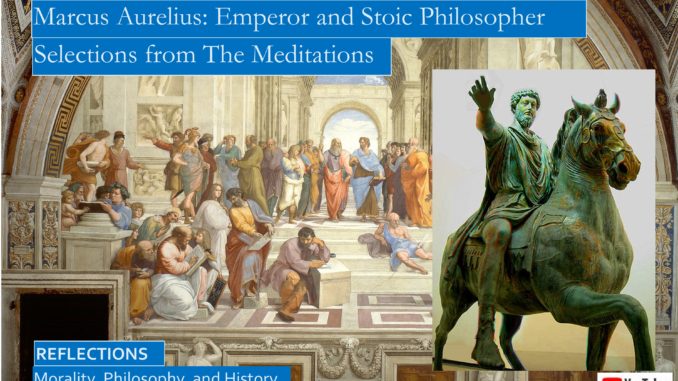
In the first book of his Meditations Marcus praises his parents and grandparents, his tutors, the philosophers, and his adopted emperor father and all his friends and associates for their stoic qualities, showing his gratefulness, thankfulness, and humility, crediting his own good qualities not to his own intellect but those who so assiduously taught him through words and by example. By listing their qualities Marcus is also telling us the qualities we should all aspire to in our daily lives.
Marcus Aurelius advises us in Book II to “begin the morning by saying to yourself, I shall meet with the busybody, the ungrateful, arrogant, deceitful, envious, unsocial. All these things happen to them because they are ignorant of what is good and evil. . . I can neither be injured by any of the, for no one can fix on me what is ugly, nor can I be angry with my kinsman, nor hate him.”
Marcus Aurelius Blog 1 http://www.seekingvirtueandwisdom.com/marcus-aurelius-blog-1-friend-or-foe-or-both-of-christianity/
YouTube video: https://youtu.be/0qHpReZYhv4
(We now prefer the Waterfield translations.)
YouTube video for blogs 2-5: https://youtu.be/0qHpReZYhv4
YouTube script for more book links: https://www.slideshare.net/BruceStrom1/marcus-aurelius-and-his-meditations-stoic-view-of-life
What is the message? When we act in love to our neighbor, that we should not be shocked by the lack of appreciation or recognition of our virtue, but rather we should not be shocked or surprised when our neighbor returns evil for good, disdain for kindness, gossip for friendship, envy for love.
Marcus Aurelius continues, “Every moment think steadily as a Roman to do what you need to do with perfect and simple dignity and feeling of affection and freedom and justice,” lifting the weight of all other thoughts from your shoulders. How can you do this? By living every day of your life as if it were your last, living your life by the rules of reason, “laying aside all carelessness, hypocrisy, self-love,” being content with what you have.
“Since it is possible that you might depart from life this very moment, regulate every act and thought accordingly.” Like Epictetus, Marcus Aurelius believes in a type of henotheism, or maybe a monotheistic polytheism, when he ponders whether the gods exist, and if they do exist, whether notice or care what man does. “But in truth they do exist, and they do care for human things, and they have put all the means in man’s power to enable him not to fall into real evils.”
Like all Stoic philosophers, Marcus Aurelius never asks why bad things happen to good people, why the virtuous suffer while the evil prosper, how God can permit suffering in a perfect world. Not only are these questions never asked by the stoics, these questions would have been absurd. Marcus Aurelius is aware that “good and evil happen indiscriminately to the good and the bad.” Furthermore, “death and life, honor and dishonor, pain and pleasure – all these things happen equally to good men and bad, being things which make us neither better nor worse. Therefore, they are neither good nor evil.”[1] The Stoics never only ask why bad things happen to good people, rather they ask, bad things happen to both good people and bad, good things happen to both bad and good people, sometimes more, sometimes less, so what? If you are poor, be virtuous in your poverty, if you are rich, be virtuous in your wealth, always be generous, you can live a virtuous life regardless of your station in life.
Like all Stoic philosophers, Marcus Aurelius does not focus on the nature of the soul, of what life is like in the afterworld, and certainly does not ponder whether our good deeds in this world will be rewarded in the next. In Greek myth the souls of the deceased, good and bad, are but shades dreamily drifting about in the dark waters of the underworld, scarcely aware of their existence. The “Meditations” meditates on this question for a whole paragraph, concluding that “the souls after subsisting for some time are transmuted and diffused,” and are diffused into the universe “to make room for the fresh souls that come to dwell here.” Not only do the Meditations not mention the possibility of rewards in the hereafter, but it does not even offer hope that the hereafter will last for long.
But this lack of rewards for goodness does not hinder the Meditations to admonish, “Do not act as if you were going to live ten thousand years. Death hangs over you. While you live, while it is in your power, live a godly life.” “Take away the complaint, ‘I have been harmed,’ and the harm is taken away.”
And, “how much trouble he avoids who does not look to see what his neighbor says or does or thinks, but only to what he does himself, that it may be just and pure. Do not look around at the depraved morals of others, but run straight along the line without deviating from it.” This progression is seen in the Decalogue, where we are bid first to think right thoughts, so our speech may be respectful and holy, so our actions may be virtuous. What we think, what we say, influences what we do, who we are, what we are.
“Why are you discontented with the badness of men? Rational creatures exist for one another, and to endure is a part of justice, and men do wrong involuntarily.”
The Stoics certainly believe that evil men are punished and just men are rewarded. “Does anyone do wrong? It is to himself that he does the wrong. Has anything happened to you?” Everything that happens to you has been spun out to you through fate. “In a word, life is short.” You will profit from the present when you live with the aid of reason and justice.[2]
The Meditations admonish us to take care of our soul, so our soul may be a good soul, a kind soul, a virtuous soul. We do not want our soul to be an abscess on the universe.
“The soul should not be at anything that happens.”
“The soul does violence to itself when it turns away from any man,” when it is angry with any man, when it thinks of injuring any man.
“The soul does violence to itself when it is overpowered by pleasure or by pain.”
“The soul should not say anything insincerely or untruthful.”
The soul should not act aimlessly or thoughtlessly.[3]
Jesus concludes the Sermon on the Mount:
“Everyone then who hears these words of mine and acts on them will be like a wise man who built his house upon the rock. The rain fell, the floods came, and the winds blew and beat upon that house, but it did not fall, because it had been founded on rock. And everyone who hears these words of mine and does not act on them will be like a foolish man who built his house upon the sand. The rain fell, and the floods came, and the winds blew and beat against that house, and it fell; and great was its fall!”[4]
The metaphor of building your life on the rock is a recurring metaphor among the Stoic philosophers, the Meditations version reads, “be like the rock against which the waves continually break; but it stands firm and tames the fury of the waters around it. Do not say, ‘I am unhappy, because this has happened to me.’ But rather ray, ‘I am happy, though this has happened to me, because I continue free from pain, neither crushed by the present nor fearing the future.’” Will the misfortunes that you are compelled to endure “prevent you from being just, magnanimous, temperate, prudent, secure against gossip and falsehood, will it prevent you from having modesty and being free” from sin?
Marcus Aurelius Blog 3 http://www.seekingvirtueandwisdom.com/marcus-aurelius-blog-3-genuine-friendships-have-no-scorecards/
Book Reviews: Greco-Roman Stoic and Cynic Philosophers, and Epicurus
[1] Marcus Aurelius, “Meditations,” translated by George Long, revised and updated (Dover Publications, 1997), Book 1 and Book II, 1-20.
[2] Marcus Aurelius, “Meditations,” Book IV, 19-27.
[3] Marcus Aurelius, “Meditations,” Book II, 11.
[4] https://www.biblegateway.com/passage/?search=matthew+7%3A24-27&version=NRSVCE

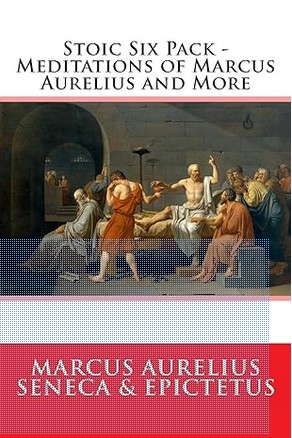
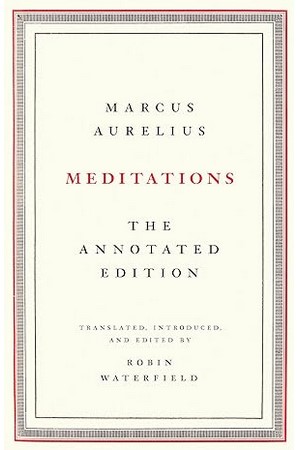
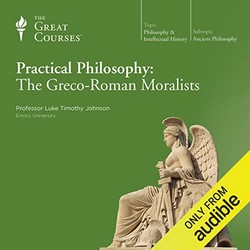
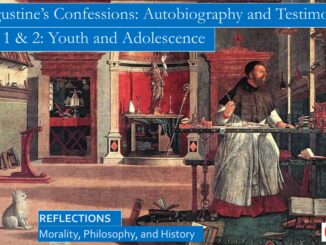

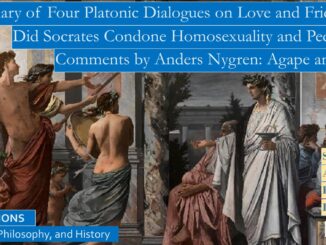
10 Trackbacks / Pingbacks